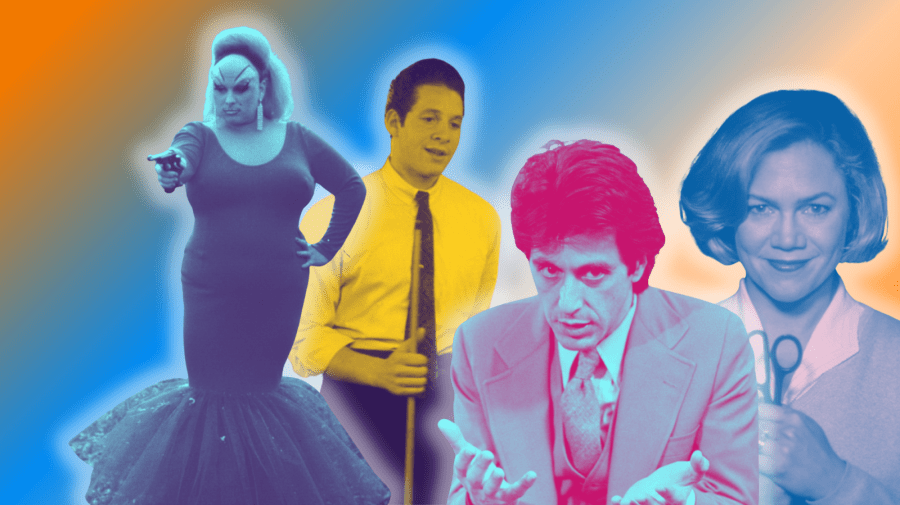
The City of Baltimore, Maryland is most famous in recent years for a pair of shows created by David Simon: The Wire and, more recently, We Own This City. Of course, the city is famous for lots of other things, too. Baseball’s Baltimore Orioles and football’s Baltimore Ravens are popular sports franchises, and Johns Hopkins University is one of the most revered academic institutions in the U.S.
Still, over the past couple of decades, if you find yourself thinking about Baltimore as someone who doesn’t live there, chances are you’re thinking about The Wire, which first came out 20 years ago this June. As one of the universally-regarded greatest shows ever, the connection between The Wire and the city makes a lot of sense. Even so, quite a few great filmmakers besides David Simon — including Barry Levinson and John Waters — have used Baltimore in their stories over the years.
Barry Levinson’s Baltimore Films
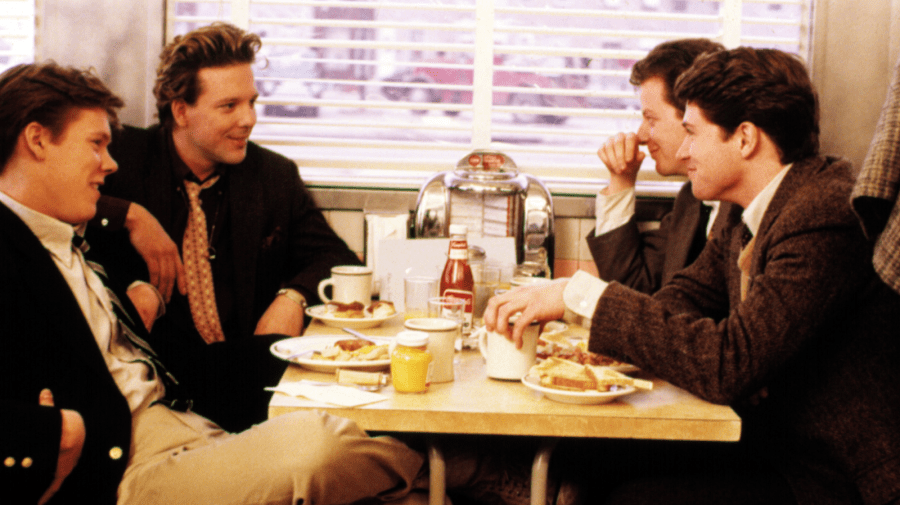
Barry Levinson, who has been directing films now for 40 years, grew up in Baltimore and mined his experience of growing up Jewish in the city in many of his best films. Considering his roots back in 1999, Levinson wrote that, “In the movies we tend to have a New York sensibility, from Woody Allen to Neil Simon, but there is a world of Jews outside New York, and these are the ones I write about: my family, my friends and the world that I know and understand best.”
Before he directed any films though, Levinson wrote the screenplay for …And Justice for All (1979), a legal drama set in Baltimore. It was directed by the great Norman Jewison and starred Al Pacino. Of that film’s Oscar-nominated screenplay, which Levinson wrote with Valerie Curtin, Levinson remembered, “When I sat down with my writing partner to do the screenplay, it began, ‘FADE IN BALTIMORE’ — though I never believed the movie would ever happen, much less actually be filmed in the city of my birth.”
For his first feature as a director, Levinson made Diner (1982), a movie that centers around the experience of a group of friends in Baltimore in 1959. Our protagonists get together at a diner before a mutual friend’s wedding. Aside from their conversation at the diner, which is in the Fells Point neighborhood, there are other nods to the city. The wedding is Baltimore Colts-themed — something that’s now particularly heartbreaking for Charm City residents given the fact that, in real life, the Colts famously packed up and moved in the middle of the night to Indianapolis in 1984, just a couple years after Diner’s release.
Levinson would go on to make three more films set in Baltimore. Tin Men, a comedy which came out in 1987 and stars Richard Dreyfuss, Danny DeVito and Barbara Hershey, is set a few years after Diner, in 1964. Dreyfuss and DeVito play aluminum siding salesmen who are trying to best each other and end up losing their licenses because of their corrupt sales tactics.
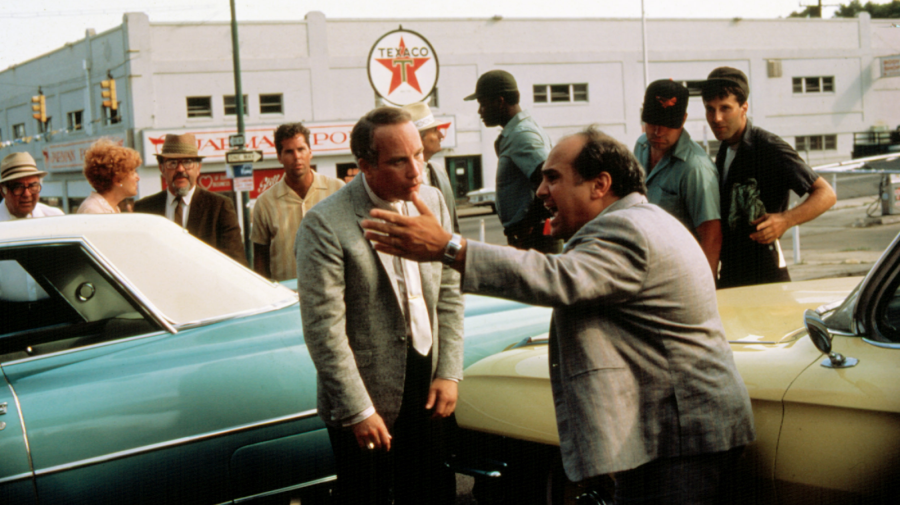
Avalon (1990) and Liberty Heights (1999) find Levinson going back to his roots in Baltimore to explore the Jewish American context in which he grew up. Neither film was a commercial success, but each tells an interesting story. Avalon takes us through the experience of a Polish immigrant family over the course of multiple generations in the first half of the 20th century. Liberty Heights is far more auto-biographical, and centers the stories of two young Jewish men who, in their attempts at romantic relationships, struggle with racism both against Jews and against Black people. Through all of these films, Levinson explores the Baltimore of the not-so-distant past through the lens of his own experiences.
John Waters’ Baltimore Films
John Waters — a.k.a. “The Pope of Trash” — has long been famous for making art, including feature films, that celebrates the kinds of things society tends to dismiss as overly controversial. He’s a little less well known for his connection to Baltimore, even though it’s at the center of all of his most-loved cult classic films.
Baltimore serves as the setting of everything in Waters’ filmography, from his earliest work like Mondo Trasho (1969) and Multiple Maniacs (1970) to his films of the 2000s, like Cecil B. Demented (2000) and A Dirty Shame (2004). It feels strange, somehow, to single out individual movies, though, since Waters is the rare filmmaker who has continued, throughout his entire career, to set his work in and around his hometown.
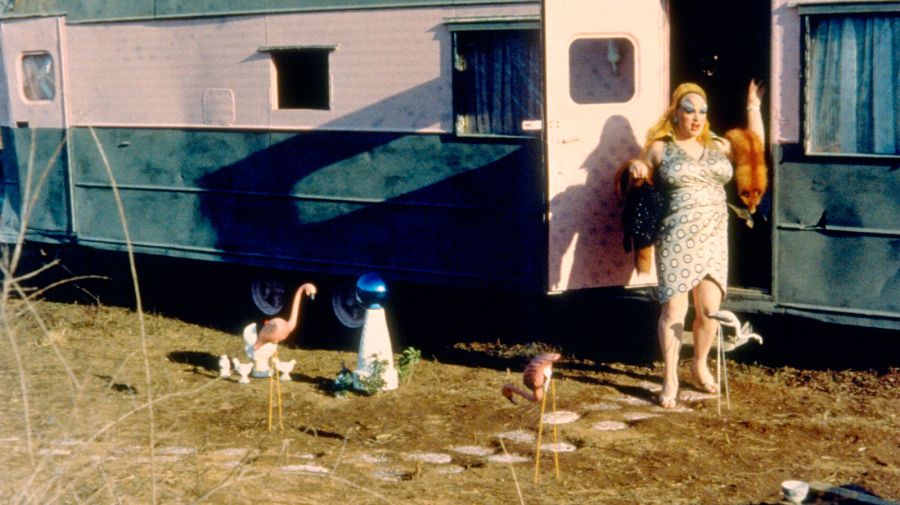
Nevertheless, he shines a light in lots of places where light doesn’t normally shine. Perhaps his most notorious film is Pink Flamingos (1972), which celebrated its 50th anniversary in March of this year. The film is the story of an underground criminal — played brilliantly by Divine, the drag queen with whom Waters started a friendship when both were teenagers in Baltimore in the 1960s — living under the name Babs Johnson out on the edge of Baltimore County. Babs has been named “The Filthiest Person Alive” by the press, an appellation that certainly fits with the film. Pink Flamingos was an incredibly shocking cult hit at the time, and has a long history of being both censored and celebrated.
Another one of my personal favorites in the Waters canon is Serial Mom, his 1994 black comedy starring Kathleen Turner. Serial Mom takes place in the Baltimore suburbs, where Turner plays Beverly Sutphin, a serial killer who happens to also be a seemingly unassuming and perfect housewife. Thinking about the film in the context of its setting, it’s exciting to think about the ways in which Waters reveals the dark underbelly of the suburban life that he grew up around in Lutherville, just outside of Baltimore. Of course, it’s just a piece of what is really a career-long exploration.
Other Films Set In Baltimore
Baltimore isn’t exactly Hollywood, but it’s been the setting of a few other popular movies over the years outside of the more profound explorations by John Waters and Barry Levinson.
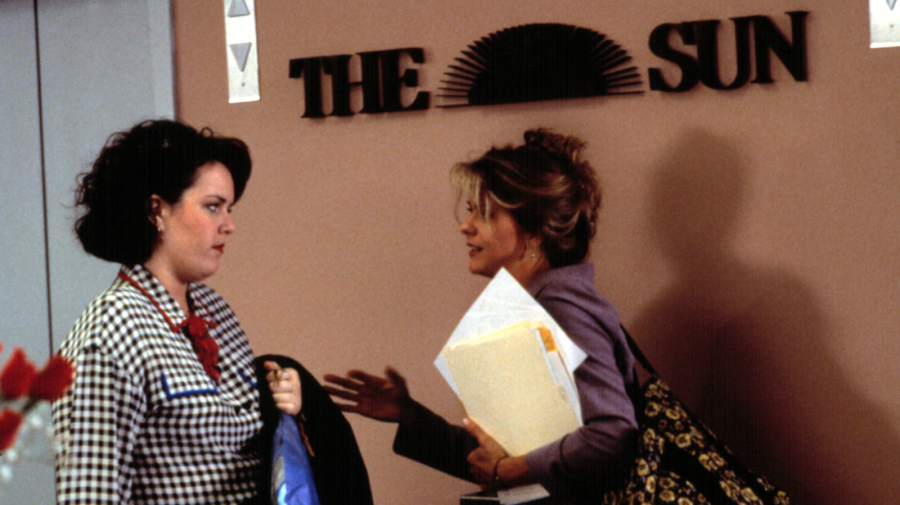
On the lighter side, the 1993 romantic comedy smash hit Sleepless in Seattle — you might be surprised to learn — is partly set in Baltimore. Meg Ryan’s Annie Reed plays a news reporter for the Baltimore Sun, and many of her scenes are shot around recognizable spots in Baltimore. Jodie Foster’s 1995 film Home for the Holidays — for my money, one of the best, smartest family movies of all time — is also set in Baltimore. It stars Holly Hunter and Robert Downey Jr. as siblings, and is an incredibly emotional and funny film.
Finally, if thrillers are more your speed, check out Tony Scott’s 1998 film Enemy of the State. It’s a surveillance thriller starring Will Smith and Gene Hackman, and its most famous Baltimore moment is probably the explosion of Hackman’s character’s hideout — the old Dr. Pepper plant that was specifically demolished for the movie. Just another piece of Baltimore trivia for your movie-watching enjoyment.

 Seth Landman
Seth Landman




